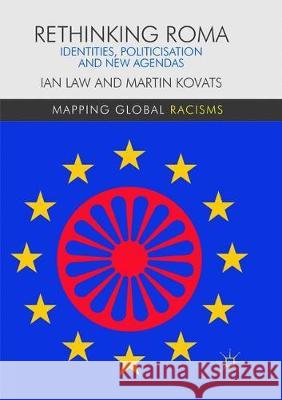Rethinking Roma: Identities, Politicisation and New Agendas » książka
topmenu
Rethinking Roma: Identities, Politicisation and New Agendas
ISBN-13: 9781349678143 / Angielski / Miękka / 2019 / 225 str.
Kategorie:
Kategorie BISAC:
Wydawca:
Palgrave MacMillan
Seria wydawnicza:
Język:
Angielski
ISBN-13:
9781349678143
Rok wydania:
2019
Wydanie:
Softcover Repri
Numer serii:
000451272
Ilość stron:
225
Oprawa:
Miękka
Wolumenów:
01











